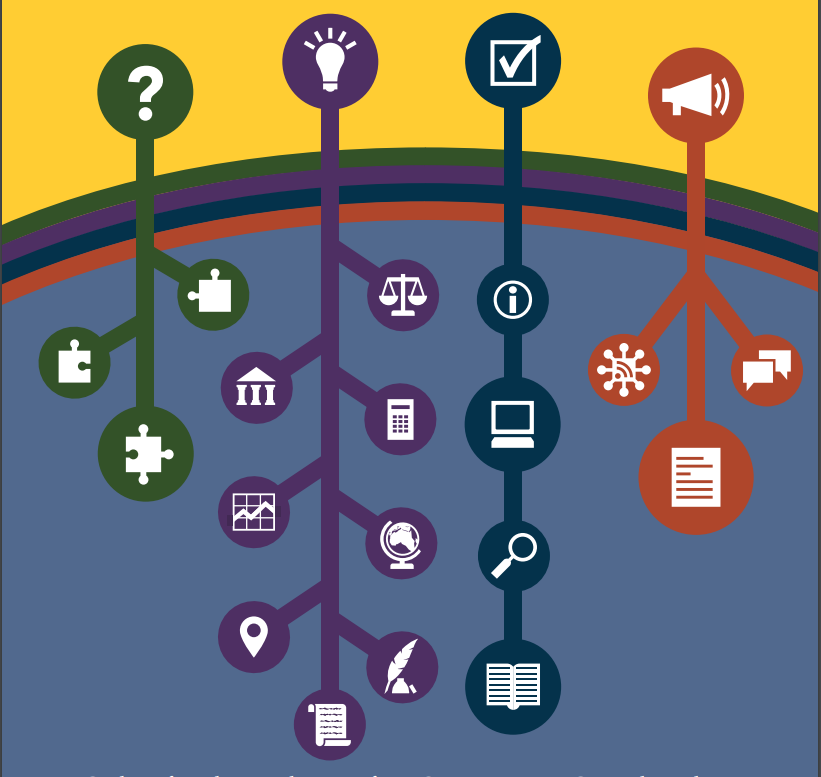
“No one puts Baby in the corner!” That line that melts hearts everywhere as Patrick Swayze’s character, Johnny, brings Baby front and center and into the spotlight in Dirty Dancing. It is a metaphor often used when proper attention is not given to a particular person or situation.
In elementary education, social studies instructional minutes have been eaten away at an alarming rate to make room for longer blocks of time for reading and math, the subjects of high-stakes testing. In response to the marginalization of social studies, the National Council for Social Studies (NCSS) designed a framework that reframes instruction and aims to elevate the importance of social studies education. Today, more than ever before, it is time to bring social studies out of the corner and reclaim its rightful place as a key component of elementary instruction.
Why Social Studies Matters
Effective social studies instruction has the power to impact student learning in the following areas:
Academic rigor. Students gain content-specific knowledge in the four disciplines of social studies (economics, history, geography, and civics) while applying critical-thinking and reading skills to gain understanding of real-world problems; furthermore, the social studies work to strengthen reading comprehension by expanding students’ background knowledge of the world and how it works. That background knowledge makes literacy skills such as inferring and drawing conclusions possible.
Social understanding. Through social studies, students are exposed to cultures far beyond their neighborhood or community. This exposure leads to an appreciation for cultural differences and to meaningful interactions with people of varied backgrounds.
Civic competence. Finally, and arguably most importantly, students gain valuable insight into history, political skills, and active citizenship, all necessary to preserve our democracy. In the introduction to the C3 Framework, the authors state that while the framework supports college and career readiness, it is “united with preparation for civic life.” And while advocates of civic education may not agree on the details, “they are bound by a common belief that our democratic republic will not sustain unless students are aware of their changing cultural and physical environments; know the past; read, write and think deeply; and act in ways that promote the common good.”

Why the C3 Framework?
The C3 framework is intended as a guide for states and educators in their efforts to reform and upgrade not only their social studies standards, but also their approach to social studies instruction.
What the Framework Is and Is Not
The framework is an inquiry arc with four dimensions. The arc begins with the development of compelling and supporting questions for a unit of study, moves to the application of specific tools, structures, and habits of mind needed to build content-specific knowledge needed to answer the questions, requires students to evaluate sources and use evidence to support those answers, and ends with opportunities for students to communicate their conclusions and take informed action.
The framework is not a prescribed set of standards; nor is it part of the Common Core initiative.
Benefits of the C3 Framework
Streamlining of standards with a seamless integration of standards for English language arts and literacy in history and social studies (the framework designates fewer but clearer and higher standards).
Motivating students with hands-on, engaging, and cooperative exercises that lead to meaningful real-life application of content.
Teaching students to act as citizens through deliberation of ideas and taking action together to solve public problems and to influence change.

Make a Seamless Classroom Transition
Just as any main shift in instruction, reframing the way we teach the social studies is a major lift and can be daunting to teachers, instructional coaches, and administrators who are already feeling the strain of too many initiatives. Oftentimes, the lift doesn’t seem to justify the end results. How can we ease the shift to the C3 Framework and make it a permanent, transformative practice in the teaching of social studies? If we agree with Hunter S. Thompson that “anything worth doing is worth doing right,” we need to take action steps that will help teachers embrace the shift.
Start small. While building your own understanding around the C3 Framework, try incorporating an inquiry arc into one or two units of study that you already teach. Doing one or two units well is far more important than trying to revamp an entire curriculum in a hurried, exhaustive overhaul of your entire year’s curriculum. Tweak your work while you build your confidence, then continue to add the inquiry arc to other units.
Use available resources. You are not alone in your transition to the C3 Framework. Educators, curriculum specialists, and textbook/resource publishers have been doing the work and sharing their expertise, so why reinvent the wheel? Explore one or more of the following resources:
- From templates for building your own inquiries to grade-level collections of inquiries ready to implement, C3teachers.org can help build a foundation of quality units in your classroom
- The National Archives can streamline your search for primary and secondary documents, inquiry tools, and activities.
- The Nystrom Young Citizens curriculum is designed to pack academic punch by combining content standards, varied depth-of-knowledge exercises, and the C3 Framework
Grow your own understanding. You cannot effectively advocate for something that you don’t understand yourself. Take time to build your knowledge about the C3 Framework and its benefits. Watch webinars, read related articles (such as “The Links between the C3 Framework and the NCSS National Curriculum Standards for Social Studies”), complete a micro-credential, read the framework itself, and then help colleagues and local administrators see the impact of bringing social studies to the forefront of an integrated instructional day.
Seeking a full C3-aligned elementary social studies curriculum?
Try a free trial of Nystrom Young Citizens
Julie Holland has spent her career as a public educator in Alabama and Missouri. Julie has had the privilege to work with students and teachers at every PK–12 level, first as a secondary language arts teacher for sixteen years and then as an elementary instructional coach for the past seven. Her goal as a Young Citizens national facilitator is to support teachers in unpacking standards, practices, and curriculum so that they may focus on the true art and joy of teaching.
